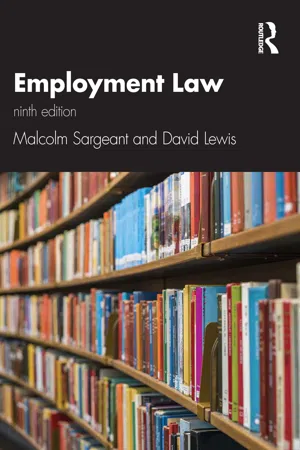Chapter Contents
- 1.1Introduction
- 1.2Primary and secondary legislation
- 1.3The EU Treaties and legislation
- 1.4The courts
- 1.5Advisory, Conciliation and Arbitration Service
- 1.6Central Arbitration Committee
- 1.7Certification Officer
- 1.8Information Commissioner
- 1.9Equality and Human Rights Commission (EHRC)
- 1.10Other useful websites
- Further reading
